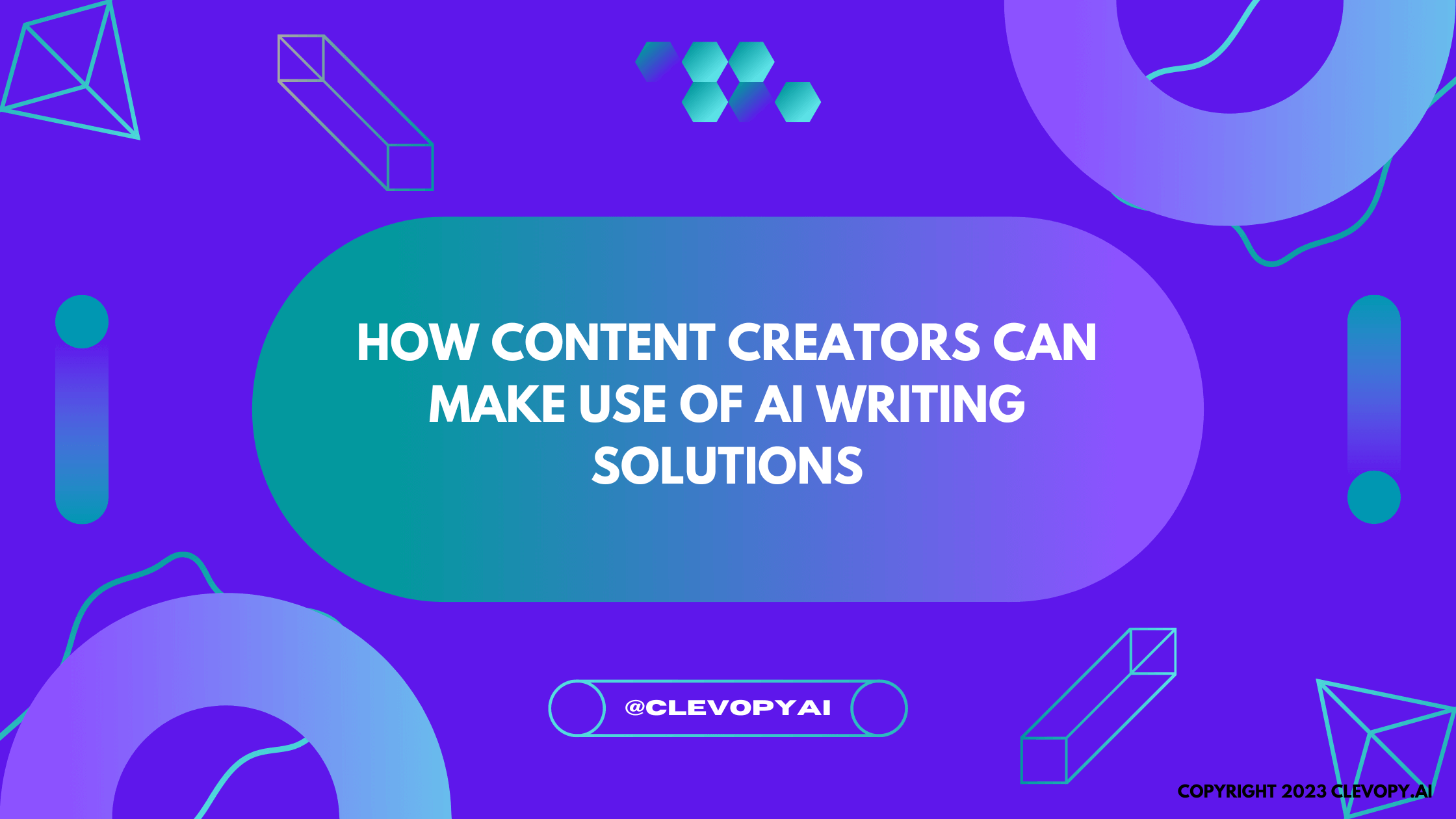Content creators can make use of AI writing solutions to speed up and automate their content production. AI solutions can help come up with fresh ideas, generate drafts, and even develop a full story from scratch based on the inputs provided.
Some AI content generators allow for quicker editing processes and help authors and writers save time by automatically formatting and applying necessary changes to the text.
To get started, content creators need to choose an AI writing solution that best suits their needs. They then need to integrate the AI technology into their existing systems, which may require coding know-how depending on the platform they're using.
Once set up, they can feed in various data points or develop a template for their AI software to follow when creating new content. This process usually involves training the AI system so it's able to provide relevant results.
With ongoing trained AI solutions, content creators can make use of the output generated by their AI system. Depending on the type of project at hand, they can either rely solely on the output generated by their AI system for final edits or combine it with human input for better results.
Content creators should also note that not all tasks are suitable for AI – some projects might require more creative thinking and human intervention.
Content creators are often overwhelmed with the amount of content they need to produce to remain competitive.
Creating content can be time-consuming and tedious, but Artificial Intelligence (AI) writing solutions provide a way for content creators to speed up the process and produce quality content in less time.
Here’s how content creators can make use of AI writing solutions:
1. Research: AI writing tools allow you to quickly research topics and create relevant content based on your findings. By leveraging AI capabilities, it becomes easier for content creators to find the information they need for their projects.
2. Brainstorming: AI tools can help you generate ideas for your article or blog post by suggesting related terms or topics. This allows you to quickly get insights into what type of content could potentially be created.
3. Writing Content: Once you have an idea or topic, AI tools can assist with actually creating the written work by suggesting words or phrases that may fit better within a sentence structure.
4. Editing: Most AI writing solutions offer editing services that allow you to fine-tune your work without having to spend as much time manually doing so. These editing services can spot typos, grammar errors, redundancies, and more making sure that when the finished product is ready it is professional grade.
Using AI writing solutions can help streamline the process and enable content creators to produce higher quality pieces in shorter amounts of time; thus allowing them more freedom and creativity that would otherwise not be possible.
Here is how content creators can make use of AI writing solutions:
1. Find the right AI writing solution for your needs:
Depending on your content creation type, several different options may be available to you. Research all the options before making a decision so that you can choose one that best fits your requirements.
2. Getting started:
Once you have chosen an AI writing solution, start by creating an account and setting up any necessary parameters (such as language, tone, etc.). Then, provide data relevant to the type of content you want it to create.
3. Start producing:
As soon as your setup is complete, let the AI do its job! Check periodically throughout the process to monitor results and adjust any settings as needed.
4. Optimize output:
Revise and customize the generated output according to your preferences or brand standards before deploying it live.
In conclusion, content creators looking to speed up their workflow should consider investing in an AI writing solution as it can be a great way to quickly generate relevant texts from large amounts of data.



